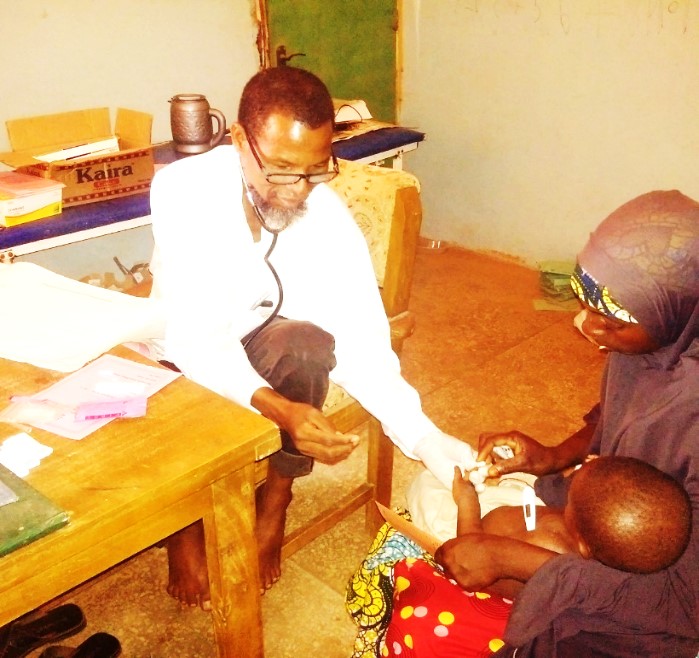The World Health Organization (WHO) recommends that all suspected malaria cases be parasitologically confirmed before treatment. In Nigeria, the lack of adequately skilled laboratory scientists; unavailability of high resolution light microscopes; and unstable power supply, particularly in rural settings, make it difficult to abide by this recommendation, and have been key factors fueling the large proportion of fever cases being presumptively treated as malaria. This practice leads to over-prescription of artemisinin‑based combination therapy (ACTs), treatment failures arising from wrongly diagnosed cases, and wastage of ACTs. Of particular concern is the increased chance of resistance to treatment, which would be a great threat to the ongoing progress to combat malaria in Nigeria.
Ambursa Primary Health Center is a small health facility in the Zaura Local Government Area of Kebbi State, in North West Nigeria. Abubakar Abdullahi, who works in this health facility, sees an average of 50 cases of fever every day. As per his earlier training, he treated all the fevers as suspected malaria and administered ACT without confirmatory tests. As a result, his health facility’s demand for and consumption of ACT was very high, leading to periodic stockouts. Furthermore, he noted that after treatment with ACTs, a number of patients still returned within few days with persistent fever.
In 2014, the U.S. President’s Malaria Initiative (PMI) began supporting Kebbi State to reduce the burden of malaria through the Malaria Action Programme for States (MAPS) project. The MAPS project identified key health providers, especially from primary level health facilities, who had not been trained on malaria rapid diagnostic tests (RDTs). Mallam Abubakar Mohammed was one of those selected for training. He was trained on how to administer an RDT and how to capture and document these actions appropriately. PMI also provided free RDTs and other malaria commodities to his health facility. He now routinely conducts RDTs for all suspected malaria cases. He explains: “More than 60 percent of cases reporting with suspected malaria fever have returned negative results following RDTs, meaning the fevers were a result of other causes. I am now able to correctly diagnose malaria and use other drugs when the test is negative.”
Subsequently, Mallam Abubakar has successfully trained five other staff members in his health facility to correctly administer the test, as well as to diagnose and appropriately treat uncomplicated malaria cases. “The PMI/MAPS project has made us stop giving antimalarial medicines to everyone presenting with fever. We are now working to change the belief of the community about every fever being malaria.” Thanks to these efforts, the proportion of suspected malaria cases that received ACT without laboratory diagnosis in Kebbi State declined from 32 percent in 2014 to 13 percent in 2016 in Kebbi State, according to the Nigeria Demographic Health Information Survey 2 (DHIS2).

